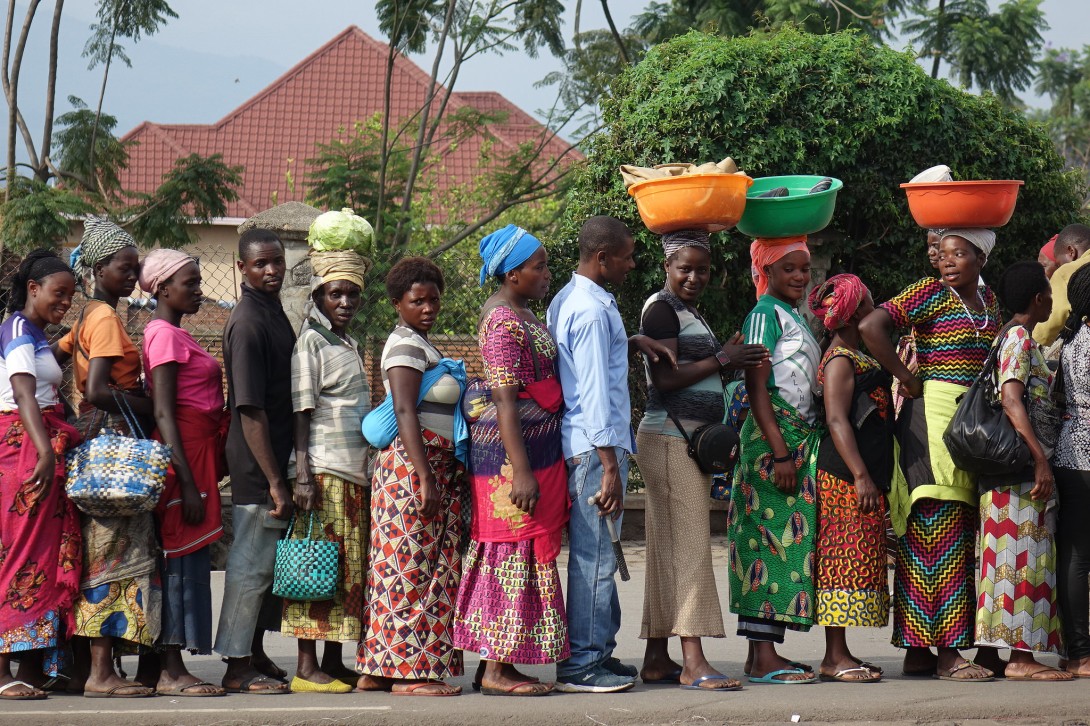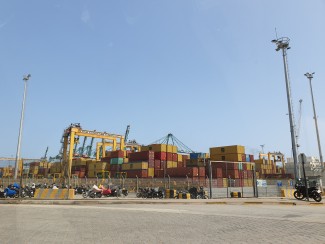Following a recent visit to Rwanda with EIF, Netherlands Ambassador to the WTO and LDC Sub-Committee Chair Monique van Daalen discusses seeing the country’s cross border trade efforts in person, as well as the country’s policy in action
So what was your experience of Rwanda’s trade situation during this trip?
For me personally I wanted to get a sense of what Least Developed Countries (LDCs) are doing, and Rwanda is special. Kigali is very modern but in the countryside you see there are people struggling to get by, and therefore EIF is an important organization helping Rwanda implement its trade programs.
Rwanda is intending to graduate from being an LDC in a couple of years. They would like to start the process in 2020 – which is very soon – and they are making plans. While there I saw extensive, well thought out economic plans for the next ten years. It was really impressive.
Can you elaborate on the Government's trade planning?
Speaking with the people at the Ministry of Trade and Industry who hosted us in Kigali, they have detailed long-term plans for trade. But they also said it is still quite hard to put those plans into practice. There are many things they run into. One is of course their history, which I fully understand.
Demographically they have a lot of young people, which brings with it the need to invest a lot in education, and they have started with primary education and universities and vocational training. One of the things we saw in the Special Economic Zones in Kigali where the big companies are is that lack of skills can be a problem so efforts with education are important.
Also there are more women in Rwanda than men, so a lot of female-headed households. I spoke with the Permanent Secretary in the Ministry of Gender and Family Promotion and she explained to me that they are trying to make women more robust in the economy. Women account for 40% of the trade volume in Rwanda. With the cross border markets the majority of traders are women, so the Government is trying to support their role in the economy.
You visited one of Rwanda’s cross border markets. Can you elaborate?
I went to Rwanda’s border with the DRC at Gisenyi. They have a state-of-the-art, brand new combined building for immigration, for customs, for health – so they have a very well organized system.
At the Petite Barriere crossing for pedestrians you see a lot of female traders bringing their goods to the markets and buying and selling. And what they’ve done is put up a really beautiful market building, which is almost open. We had a sneak preview of the building, and a female cooperative was there to receive us and for them it was the first time to go into the building and it was really nice to see how enthusiastic these women were for this new setup. It is very well organized, they have stalls for vegetables, for meat and fish, for clothing and they are all differently designed and it’s cheap for them to rent.
They expect that it will be easier for these women and safer. The women can leave their items there and bring more items at their leisure. And one of the things that is important to them is there is a crèche so they don’t have to leave their children behind.
So, in summary, they expect more trade, easier trade and safer trade for these women.

And what about the Government’s trade policy and its focus on cross border trade?
They have a focus on it because cross border trade is a very big part of their trade overall. They said it was 40% of their total trading activity, and they don’t yet have a supply chain that is focusing on big exports. So they understand that their exports are going to be basically within the region, with neighboring countries, and I said that is no different than the Netherlands where 25% of our exports go to Germany.
The Government really understands this cross border trade, even though it is small scale, that it is important to the economy and it provides jobs, it empowers women to have this trading position, so it’s very laudable that the Government is trying to make this kind of trading as smooth and easy as possible.
The nice thing about EIF is that they have this focus on LDCs and I found in the WTO-Sub-Committee on LDCs I am chairing they really appreciate it. It is very concrete what EIF does and you see the results and EIF understands what LDCs want and need and in Rwanda it really demonstrated to me because EIF is not a large organization and it is working in Rwanda really well.
Any final thoughts on Rwanda’s trade efforts, and with cross border trade specifically?
You can really see the merits of this work, especially with the women traders at the new market. With the cooperative we met with it’s about 27 women and the leader said to me that one of the nice things about these markets is not just that the price of the booths is reasonable but also that you can do it together with others, so they don’t have to go everyday but trade off days.
It brings them a bit further from them sitting on the side of the road with a basket, it gives them the chance to be a trader in a more professional environment.
And of course as I mentioned I was impressed with the extensive and well thought out planning at the government level and the real commitment to implementing their policies.
This interview has been edited and condensed for clarity.
If you would like to reuse any material published here, please let us know by sending an email to EIF Communications: eifcommunications@wto.org.


